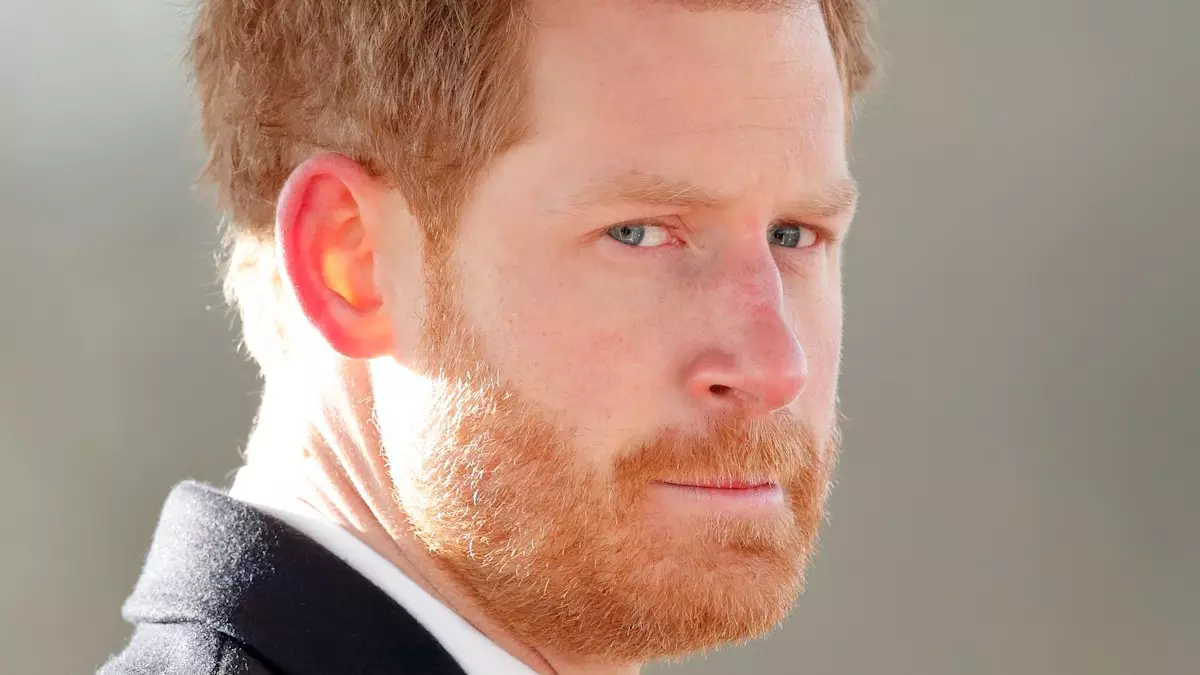Next month, Prince Harry, the Duke of Sussex, is scheduled to return to the United Kingdom, where he will face off against the publishers of The Sun in a high-profile legal battle. Alongside former Labour deputy leader Lord Tom Watson, Harry is pursuing a lawsuit against News Group Newspapers (NGN) concerning allegations of unlawful information-gathering and invasion of privacy. This trial is significant not only for its potential legal implications but also for what it represents in the ongoing struggle between public figures and media entities regarding the right to privacy.
The claims brought forward by Prince Harry are based on accusations of intrusive tactics employed by journalists and private investigators associated with NGN. These allegations point to a long-standing issue that has plagued British tabloids: the blurry line between public interest and personal violation. Harry, who is now 40 years old, has openly accused the newspaper of employing invasive tactics, including phone hacking, to gather personal information and insights.
The upcoming trial at the High Court is expected to draw considerable media attention, lasting roughly seven weeks. During this period, Harry will likely experience the scrutiny of cross-examination by the newspaper’s legal representatives. Such courtroom encounters can be challenging for individuals, especially when facing aggressive barristers tasked with undermining their testimony. For Harry, this is not his first courtroom appearance; he previously provided evidence against Mirror Group Newspapers in 2023 over similar allegations.
The heightened interest surrounding this case reflects broader societal concerns regarding media ethics and privacy rights. In a summit held in New York last December, Harry spoke candidly about the struggles that led him to pursue legal action. He mentioned that around 1,300 individuals had settled their claims against NGN, asserting that many did so out of necessity rather than justice. His quest is rooted in a desire for accountability—something that he, as a prominent royal, has a unique position to pursue on behalf of those whose voices may otherwise go unheard.
As the legal proceedings unfold, it is anticipated that Harry’s wife, Meghan Markle, will not accompany him to the UK. Meghan has previously expressed apprehension regarding her safety and that of their children, Prince Archie and Princess Lilibet. Since stepping down as senior working royals in 2020, the couple relocated to California, a situation that has created complexities in their relationship with the British royal family and, by extension, the British media landscape.
Furthermore, Harry’s legal battle extends beyond the courtroom. He has recently contested a decision made by the Home Office regarding his security arrangements during visits to the UK. In a ruling this past February, retired High Court judge Sir Peter Lane dismissed Harry’s arguments, asserting that the Executive Committee for the Protection of Royalty and Public Figures (Ravec) acted rationally and fairly concerning the levels of taxpayer-funded security afforded to him. This ruling underscores the palpable tension that exists between the Duke’s royal heritage and the practicalities of his current life.
In an emotional written statement shared in December, Harry reflected on the profound impact of relocating his family from the UK to the US. His words resonated deeply, emphasizing the essence of home and belonging. He stated, “The UK is my home…that cannot happen if it’s not possible to keep them safe when they are on UK soil.” Here, Harry articulates a sentiment shared by many individuals who navigate the intersection of duty, security, and family. His concerns highlight a broader issue where public figures often grapple with their identities amid overwhelming media scrutiny.
The complicated narrative surrounding Meghan’s relationship with the UK is equally telling. Kingdom insiders, including Royal Editor Hannah Furness, have speculated that Meghan’s absence from the UK is largely due to unresolved security issues and a trepidation towards returning until those matters are satisfactorily addressed. The dynamics of this situation epitomize the challenges faced by modern royals in a media-saturated environment.
As Prince Harry prepares for a trial that not only seeks justice for himself and Lord Watson but also serves as a beacon for others seeking accountability, the implications of this case extend far beyond personal grievances. This trial symbolizes a crucial point in the ongoing dialogue about privacy rights in an age where information is easily obtained and disseminated. It raises important questions about the responsibilities of media corporations and challenges the notion of celebrity as a justification for invasive practices.
For Harry, accountability remains a key motivator. By standing up against powerful media institutions, he not only advocates for his right to a private life but also for those affected by similar abuses. The world watches closely as the trial unfolds, hoping that it might usher in a new era of respect for individual privacy, setting a precedent for future media practices.


Leave a Reply